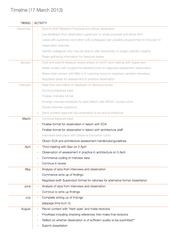|
Some possible questions ahead of my interview with Sian this Tuesday. I'll begin the interviews - conducted in Skype text - by offering some introductory background:
And then onto the questions:
And then rounding up:
0 Comments
Leave a Reply. |
Categories
All
Archives
October 2013
TimelineOther stuff
|
